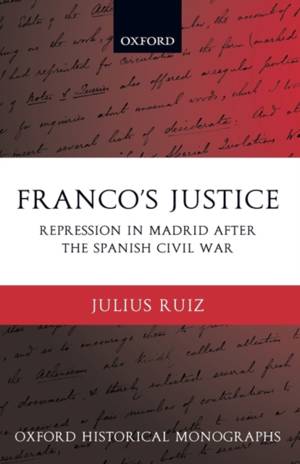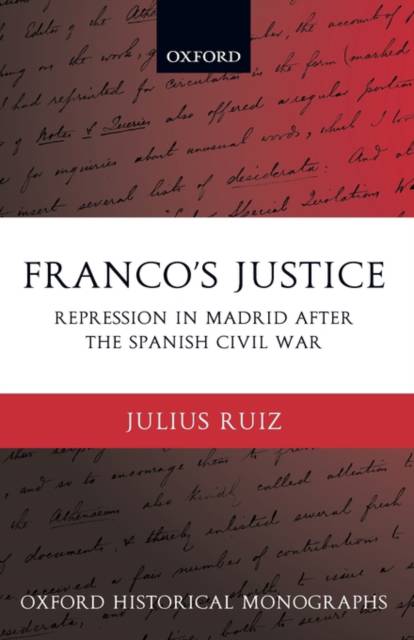
- Afhalen na 1 uur in een winkel met voorraad
- Gratis thuislevering in België vanaf € 30
- Ruim aanbod met 7 miljoen producten
- Afhalen na 1 uur in een winkel met voorraad
- Gratis thuislevering in België vanaf € 30
- Ruim aanbod met 7 miljoen producten
Zoeken
Omschrijving
Madrid became one of the key symbols of Republican resistance to General Franco during the Spanish Civil War following the Nationalists' failure to take the city in the winter of 1936-7. Yet despite the defiant cries of 'No pasarán', they did eventually pass on 28 March 1939. This book examines the consequences in Madrid of Franco's unconditional victory in the Spanish Civil War. Using recently available archival material, this study shows how the punishment of the vanquished was based on a cruel irony - Republicans, not the military rebels of July 1936, were held responsible for the fratricidal conflict. Military tribunals handed out sentences for the crime of 'military rebellion'; mere passivity towards the Nationalists before 1939 was not only made a civil offence under the Law of Political Responsibilities but could cause dismissal from work; and freemasons and Communists, specifically blamed for the Civil War, were criminalized by decree in March 1940. However, contrary to much that has been written on the subject, the post-war Francoist repression was not exterminatory. Genocide did not take place in post-war Madrid. While a minimum of 3113 judicial executions took place between 1939 and 1944, death sentences were largely based on accusations of participation in 'blood crimes' that occurred in Madrid in 1936. Moreover, and unlike most other accounts of the Francoist political violence, this book is concerned with the question of when and why mass repression came to an end. It shows that the sheer numbers of cases opened against Republican 'rebels', and the use of complex pre-war bureaucratic procedures to process them, produced a crisis that was only resolved by decisions taken by the Franco regime in 1940-1 to abandon much of the repressive system. By 1944, mass repression had come to an end.
Specificaties
Betrokkenen
- Auteur(s):
- Uitgeverij:
Inhoud
- Aantal bladzijden:
- 269
- Taal:
- Engels
- Reeks:
Eigenschappen
- Productcode (EAN):
- 9780199281831
- Verschijningsdatum:
- 29/09/2005
- Uitvoering:
- Hardcover
- Formaat:
- Genaaid
- Afmetingen:
- 155 mm x 224 mm
- Gewicht:
- 566 g

Alleen bij Standaard Boekhandel
+ 773 punten op je klantenkaart van Standaard Boekhandel
Beoordelingen
We publiceren alleen reviews die voldoen aan de voorwaarden voor reviews. Bekijk onze voorwaarden voor reviews.











